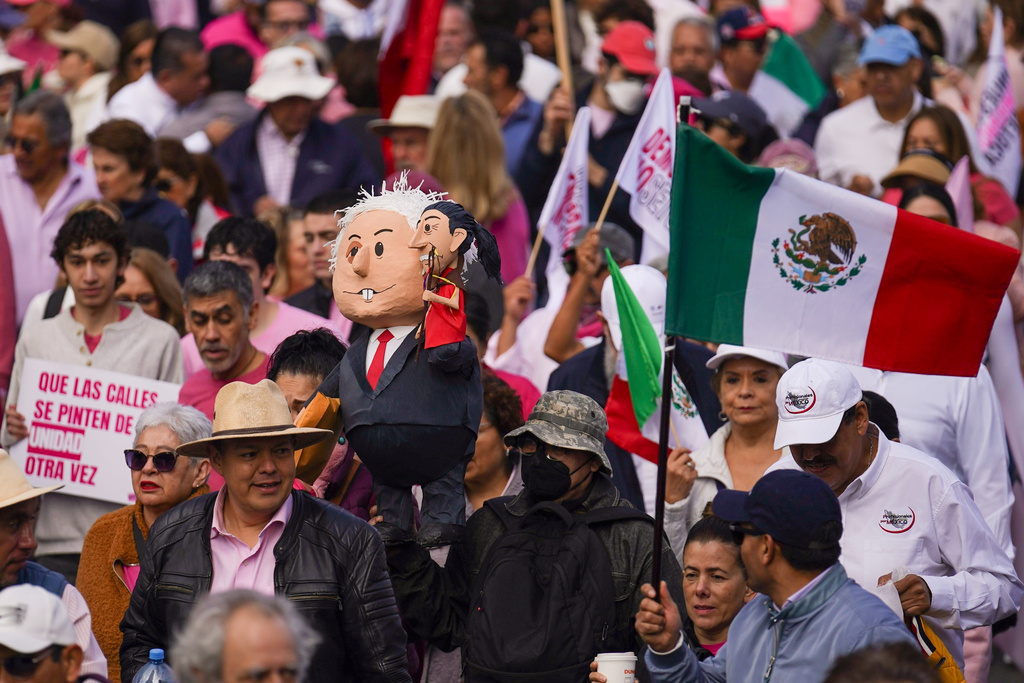Campaigning formally starts Friday for Mexico’s biggest election in history.
Voters will choose the president, along with the winners of 628 seats in Congress and tens of thousands of local positions.
The country of 130 million people has often been marked by its “macho” culture. Now it is almost certain to elect its first woman president.
Also at play are escalating cartel warfare, the political legacy of President Andrés Manuel López Obrador and the long, often tumultuous relationship with the United States.
WHEN IS THE MEXICAN ELECTION AND HOW DOES VOTING WORK?
Parties selected their candidates well before the official start of campaigning for the presidential, congressional and municipal elections. On June 2, millions of voters will turn out to the polls to vote for their new leaders. The winner of the highly anticipated presidential elections will serve a five-year term.
While most eyes are on the presidential race, Mexicans will also vote for 128 senators, 500 congressional representatives and for tens of thousands of local government positions.
WHO IS RUNNING IN THE MEXICAN ELECTIONS?
Leading presidential candidate Claudia Sheinbaum has enjoyed a comfortable lead, with around 59% of the vote, according to a February poll. The former mayor of Mexico City, Sheinbaum is seen as a continuation of populist leftist leader López Obrador and is backed by his Morena party.
Senator Xóchitl Gálvez is in a not-so-close second with around 36% of the vote. Gálvez is a fierce critic of López Obrador and is running under the Strength and Heart for Mexico coalition. Trailing behind both is little-known Jorge Álvarez Máynez of the Citizen Movement party.
WHAT ARE THE RISKS IN MEXICO’S ELECTIONS?
In swathes of the country eclipsed by cartel violence, many have raised concerns about a security crisis that has spiraled under López Obrador. In the first two months of the year, a handful of candidates were slain before the election season officially began. Watchdogs warn that this year’s elections could be Mexico’s most violent on record.
For critics, the election has become increasingly about democratic concerns, which fueled massive February protests against electoral reforms made by López Obrador. However, the leader remain highly popular for many in Mexico’s working class, López Obrador’s base. With high inflation rates, such voters are likely to stick with a candidate that they feel will advocate for them. A great number feel that the president and his Morena party have done that.
HAS THERE EVER BEEN A FEMALE PRESIDENT IN MEXICO?
A female president would be a huge step in a country with soaring levels of gender-based violence and deep gender disparities.
Mexico still has famously intense “machismo” or male chauvinism, expressed in its most extreme form in a high rate of femicides, but also daily in hundreds of more subtle ways.
While Mexican women have advanced to positions of political power in public life – in part because of required representation quotas for public office — women suffer from high levels of gender violence. Femicides — cases of women killed because of their gender — have been a persistent problem for decades.
(AP)












One Response
The left wing (Marxist) candidate is of Jewish descent. Her ancestors apparently wanted to come to the United States, but were blocked by restrictive immigration laws. The right wing candidate is also a woman (meaning the next Mexican president will be a woman, which is unusual), from an indigenous (American Indian) background. Both have academic backgrounds in the sciences. Neither appears to be especially anti-Semitic, though as in most countries, in the 21st century, right wingers tend to be less hostile to Yidden.